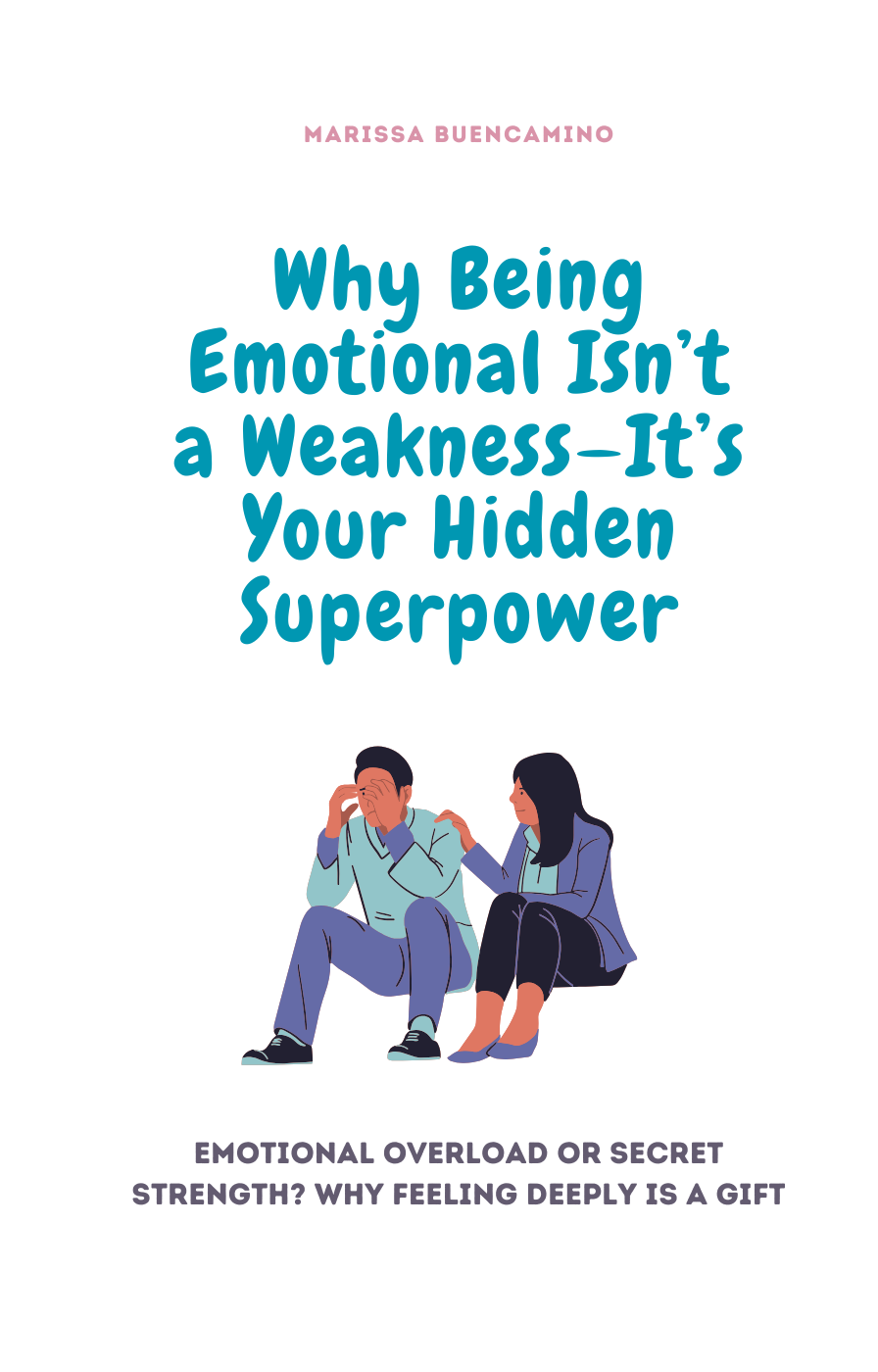
Why Are Some People So Emotional? (And Why It’s Actually Kind of Beautiful)
Let me paint you a picture: I’m in the middle of watching a random TikTok about a dog reuniting with its owner after three years. Harmless, right? Next thing I know, I’m ugly crying into my cup of tea like I’ve just binged a whole season of This Is Us. My partner walks into the room and gives me that mix of confusion and pity reserved for people who’ve just witnessed public proposals gone wrong. “Are you… okay?” they ask, cautiously.
“Y-yeah,” I sniffle, wiping my face with my sleeve. “It’s just… the dog waited three years.” 🐶💔
If you’re anything like me—or maybe even worse—you’ve probably wondered why you’re this emotional about seemingly small things. And then, there are the people on the other end of the spectrum: cool, calm, and borderline Vulcan. So why are some of us emotional puddles, while others seem impervious to feels? Let’s unpack this, because honestly, I think it’s fascinating.
The Brain: Drama Central 🎭
First off, let’s talk about the brain. It turns out, some people are just wired differently. Emotional folks often have an amygdala—the part of your brain responsible for processing emotions—that’s working overtime like it’s gunning for Employee of the Month. It’s like the brain equivalent of that one coworker who volunteers for every committee and always replies to emails in under 30 seconds.
Meanwhile, other brains have a more laid-back amygdala that’s like, “Eh, let’s not cry over spilled milk—or anything, really.”
But there’s more! Emotional people also tend to have higher empathy levels. They literally feel other people’s pain more intensely because their mirror neurons (the brain’s “empathy circuits”) are more active. So when I cry over that dog reunion, it’s not just because I’m imagining the owner’s joy—I’m absorbing it like an emotional sponge.
Blame It on the Hormones
Then there’s the hormonal side of things. Ah, hormones: the drama queens of our internal systems. For some people, these little chemical messengers love to stir the pot. Cortisol (the stress hormone) and oxytocin (the bonding hormone) can heighten emotional reactions, especially in situations where you feel connected to someone—or something (yes, this includes dogs).
And don’t even get me started on serotonin and dopamine levels. When these are out of whack, your emotions can swing like a kid on a sugar high. It’s basically your body’s way of saying, “Let’s make this moment EXTRA.”
The Emotional Baggage We All Carry
Let’s get real: emotions don’t exist in a vacuum. If you’ve been through some tough stuff, your emotions might be on high alert, like a car alarm that goes off even when a leaf falls on it. Trauma, past experiences, or even the way you were raised can have a huge impact on how you process feelings.
For example, if you grew up in a house where emotions weren’t talked about (ahem, my family), you might either suppress them completely (not healthy, btw) or overcompensate by feeling all the things because you were never taught how to regulate them. On the flip side, people raised in emotionally supportive environments might feel comfortable expressing themselves without drowning in the feels.
The Social Factor
Now let’s address the elephant in the room: society’s weird relationship with emotions. Somewhere along the way, we decided that being emotional is a sign of weakness. Crying in public? Taboo. Showing too much joy? Tone it down. But why? Why are we so scared of feelings when they’re literally part of being human?
I’ve noticed that emotional people are often labeled as “dramatic” or “too sensitive,” while stoic folks are praised for being “strong” or “rational.” (Which, by the way, is kind of unfair. Just because you cry at weddings doesn’t mean you can’t also crush it at your job or survive a zombie apocalypse. Just saying.)
The truth is, being emotional isn’t a flaw. It’s a superpower. Emotional people are often better at forming deep connections, understanding others, and even creating art or stories that move the world.
Why It’s Not a Bad Thing
Here’s the thing: emotions are messy, but they’re also what make life beautiful. Being emotional means you’re alive to the highs and lows, the joys and heartbreaks. It means you can watch a sunset and feel like the universe just winked at you. It means you can fall in love with a song, a moment, a person, and feel it down to your bones.
Sure, it can be exhausting sometimes (especially when you find yourself crying over a particularly emotional car commercial—seriously, why do they make them so sad?). But honestly, I’d rather feel too much than not enough.
The Takeaway
So, why are some people emotional? It’s a combination of biology, upbringing, and the sheer randomness of being human. But if you ask me, being emotional isn’t a curse; it’s a gift. It means you’re engaged with the world around you, not just skating through life on autopilot.
And hey, the next time someone gives you a side-eye for tearing up at a rom-com or overthinking a heartfelt conversation, just smile and say, “It’s called being deeply in touch with my humanity. Try it sometime.” 😉
Now if you’ll excuse me, I need to watch a cat video to recover from writing this. 🐾
What’s the most emotional moment you’ve had recently? Let me know—I’m all ears (and probably a few tears). 💕

I don’t think the title of your article matches the content lol. Just kidding, mainly because I had some doubts after reading the article.
Link exchange is nothing else however it is only placing the other person’s web site link on your page at appropriate place and other person will also do similar in favor of you.